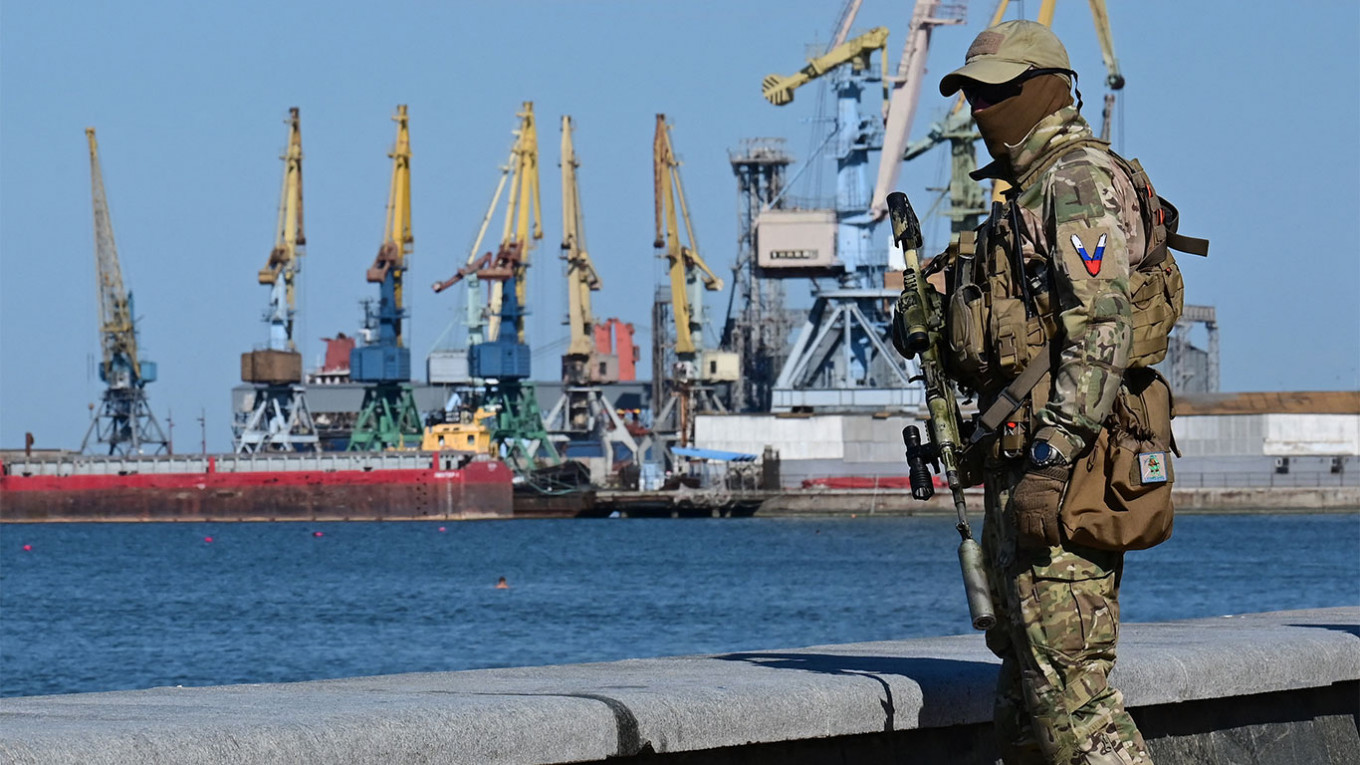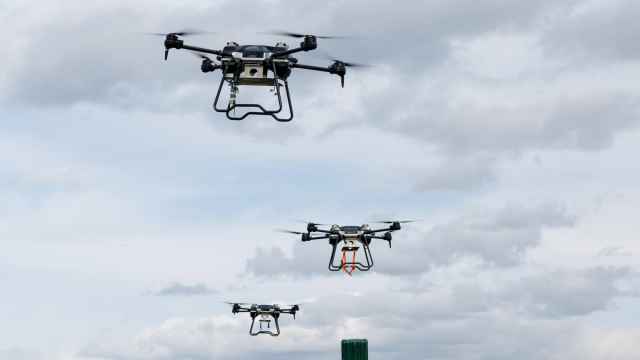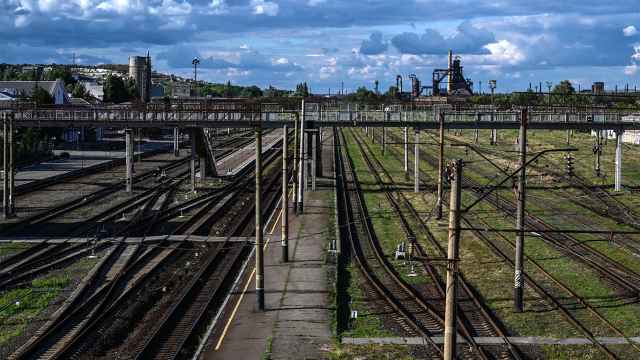Russia on Thursday began shipping grain from Ukraine's occupied territory, with a vessel carrying 7,000 tons of cereal sailing from Ukraine's occupied port of Berdyansk.
Kyiv has for weeks accused Russia and its allies of stealing its grain from southern Ukraine, contributing to a global food shortage caused by grain exports blocked in Ukrainian ports.
Until now shipments have been transported by land, Kyiv says.
Thursday's grain shipment from the port of Berdyansk marks the opening of a sea route to export wheat from Ukraine to third countries.
"After numerous months of delay, the first merchant ship has left the Berdyansk commercial port, 7,000 tons of grain are heading toward friendly countries," Evgeny Balitsky, the head of the pro-Russia administration, said on Telegram.
Russia's Black Sea ships "are ensuring the security" of the journey, he said, adding that the Ukrainian port had been demined.
Balitsky did not specify the final destination of the cargo.
Berdyansk is a port city on the northern coast of the Sea of Azov, in the region of Zaporizhzhia in southeastern Ukraine.
The southern Ukrainian regions of Kherson and Zaporizhzhia have been largely under Russia's control since the first weeks of Moscow's military intervention, and are now being forcefully integrated into Russia's economy.
'Goodwill gesture'
The pro-Moscow officials in the two Ukrainian regions claim that they have "nationalized" state infrastructure and property there and buy their crops from local farmers.
A representative of the pro-Moscow authorities, Vladimir Rogov, told state news agency RIA Novosti that 1.5 million tons of grain can be exported via Berdyansk.
Moscow's military intervention in Ukraine, a country known as Europe's breadbasket, has pushed up food prices and led to shortages, as Russia's blockade of Black Sea ports prevents millions of tons of grain from being shipped out.
The crisis has sparked fears of famine in vulnerable countries highly reliant on Ukrainian exports, particularly in Africa.
Russia insists that it will let Ukraine ship its grain if Kyiv forces demine sea lanes.
Kyiv fears Russia will launch an attack on Ukraine's Black Sea coast.
Talks involving Turkey and the UN have brought no results so far.
On Thursday, Russia said it had pulled its forces from Ukraine's Snake Island, calling it a "goodwill gesture" to allow Kyiv to export agricultural products.
Russia, the largest wheat exporter in the world, has said it is facing difficulties in exporting its own grain due to unprecedented Western sanctions over its intervention in Ukraine.
Pro-Moscow officials in the regions of Kherson and Zaporizhzhia are hoping that the occupied territories could stage a referendum and join Russia in the near future.
On Wednesday, pro-Russian authorities said they were launching bus and train services between Moscow-annexed Crimea and the regions of Kherson and Zaporizhzhia.
The pro-Moscow administration of the Kherson region also announced the opening of a branch of Russian Pension Fund responsible for paying state pensions.
Putin has said Russian forces will not occupy Ukraine.
The Kremlin claims local residents will choose their own future, suggesting they are in favor of a referendum on the status of Ukraine's occupied territory.
A Message from The Moscow Times:
Dear readers,
We are facing unprecedented challenges. Russia's Prosecutor General's Office has designated The Moscow Times as an "undesirable" organization, criminalizing our work and putting our staff at risk of prosecution. This follows our earlier unjust labeling as a "foreign agent."
These actions are direct attempts to silence independent journalism in Russia. The authorities claim our work "discredits the decisions of the Russian leadership." We see things differently: we strive to provide accurate, unbiased reporting on Russia.
We, the journalists of The Moscow Times, refuse to be silenced. But to continue our work, we need your help.
Your support, no matter how small, makes a world of difference. If you can, please support us monthly starting from just $2. It's quick to set up, and every contribution makes a significant impact.
By supporting The Moscow Times, you're defending open, independent journalism in the face of repression. Thank you for standing with us.
Remind me later.






